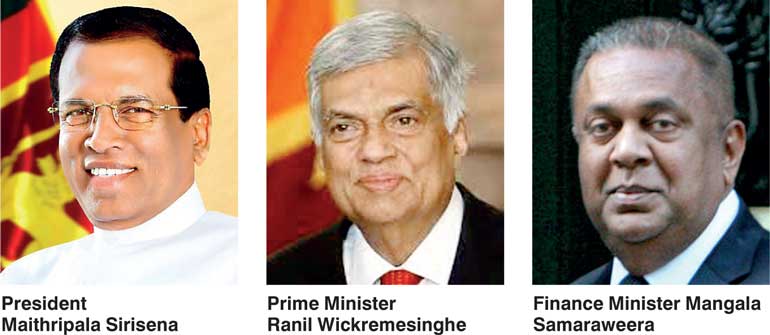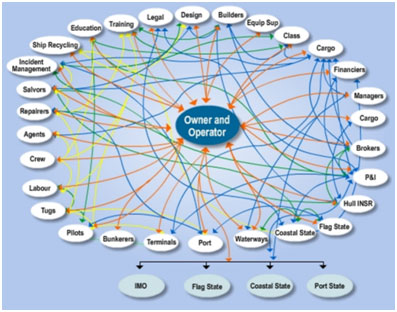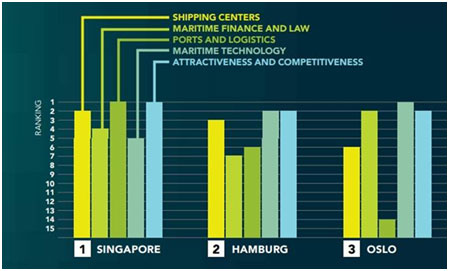Friday Feb 27, 2026
Friday Feb 27, 2026
Monday, 20 November 2017 00:00 - - {{hitsCtrl.values.hits}}
By Former Shipping Agent
The Government of Sri Lanka made a courageous decision to open the shipping and logistics sector after 40 years of liberalising the economy by President J.R. Jayewardene, that made the island nation achieve a middle-income status even with a brutal terror war for 26 years.

However, it is clear that protectionists who have enjoyed a long ride of Government blessings to stop proper competition coming in whilst they rely on international shipping companies for business have led a brutal attack on the government to stop the reform process of ship owners to come in as 100% operators.
As a former shipping agent, we all knew that opening was the right direction but free speech in the agency business was not a luxury as few controlled CASA over and over again. Today many CASA members and SLFFA members are privately talking and are hoping that the Government will have the courage to walk the talk in shipping liberalisation.

Figure 1.1( Maritime Singapore)
How and why Singapore
In the interest of the business community, I would like to share my experience of Singapore, which is considered, the world’s top most maritime capital. It is a small island, geographically well positioned just as Sri Lanka which is even positioned better. The figure 1.1 shows Maritime Singapore is a thriving ecosystem comprising of a global hub port, with supporting shipping, logistics and maritime services, where the international community meets, and where ideas and opportunities abound.
It’s totally open for global investors without any punitive restrictions but entrenched with a strong regulatory framework. The figure 1.1, which is taken from PSA, shows how the maritime economy is grown. It is centralised around ‘owner & operator’ where thousands of new job opportunities and services are created around the core business of shipping and maritime. It is no secret, the success of the Singapore economy, including exports, grew with the maritime eco-system created by its Government which is committed to do so.
Keeping the lead
In making predictions about the world’s leading maritime capitals five years ahead, the majority of industry experts surveyed in 2017, a shared consensus that Singapore will remain the most important city, with many believing that the country has strong capabilities to handle digital transformation in the mature maritime industry which was built for years through greater liberalisation policy.
In the rankings in shipping, ports and logistics categories, Singapore emerged first due to its strategic geographic location, combined with its position as an important competitive centre for commercial management and the world’s second largest port and being among the world top five free economies.

Figure 1.2 (maritime Singapore)
Can Sri Lanka do it?
It is said that better late than never. Now that the Minister of Finance had announced that Sri Lanka will join the Indian Ocean regional countries in liberalisation years later to take advantage of its location. This signal is strong to the world. It is also a core element of government’s 2025 vision to be the Indian Ocean hub as the document issued by the President and the Prime Minister.
As an industry person, in my opinion, the budget 2018, the fundamental structure lies in this proposal which can transform the country over the next decade, However, the noises against this reform will try to scuttle every effort to stop the people benefitting at the cost of a ‘small exclusive club’.
They are also trying now to bring in indirect barriers, as a second step to stop the reforms. One such proposal seen in the newspapers, is getting the Minister to say, to open if $ 100 million is brought in. We in the industry know that, one can buy a 13,000 TEU vessel for $ 100 million and a triple E class vessel for $ 180 million. No one is going to come and park money overnight of this nature to develop the above eco-system for Sri Lanka. Hope the government doesn’t get caught to these unrealistic, indirect trade barriers.
I wish the policy makers would do the right thing by the country and this would be the test of endurance to ‘yahapalana’ Government.